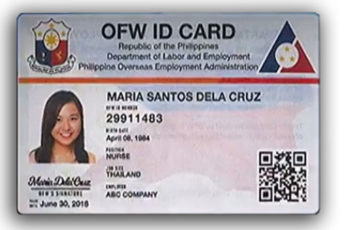On Tuesday, His Highness President Shaikh Khalifa Bin Zayed Al Nahyan had duly signed a law stating working conditions by domestic helpers in Abu Dhabi. The said law aims to balance the relationship between employer and the worker by protecting the interest of both parties aligned with local legislation and international labor standards.
According to Saqr Ghobash Saeed Ghobash, the Minister of Human Resources and Emiratisation, the law will promote decent work conditions among domestic helpers including social protection and access to the Ministry and courts.
Stipulated in the contract are regular weekly day-off, 30 days of paid annual leave and the right to retain personal document and a daily rest of 12 hours with at least 8 consecutive hours.
The minimum age set for the domestic helper is 18 years old based on international law which is against child labor.
It is then the obligation of the placement agencies to properly educate the domestic helpers on the terms of their employment including the nature of work, the workplace, their compensation and the schedule of weekly and daily rest as set by the law.
Meanwhile, by the end of the year, new centers called Tadbeer will be replacing the recruitment agencies of the domestic helpers. They will also provide them with proper training, work orientation and guaranteed proper visa.
Entitlements of domestic workers
As per the law, domestic workers are entitled to:
• Payment of wages, as set out in the standard contract, within ten days from the day they are due;
• One day of paid rest per week;
• Twelve hours of rest per day, including eight hours of consecutive rest;
• Medical insurance provided by the employer;
• Thirty days’ medical leave per year;
• A round-trip ticket home every two years;
• A decent accommodation;
• Decent meals at the employer’s expense;
• Clothing, if required by the employer, at the employer’s expense;
• Possession of their personal identification papers such as passports, IDs etc; and
• Either the employer or the worker can refer a dispute to the Ministry of Human Resources and Emiratisation. The ministry will attempt to resolve the dispute amicably within a period of two weeks. If no resolution is reached, then the matter will be referred to a court. Under this law, cases filed by workers are exempted from court fees at all stages of litigation and must be heard in a speedy and prompt manner.
Legal prohibitions
The law prohibits the following:
• employment of anyone under the age 18;
• exposure to physical harm’ and
• assignment of tasks that are not covered under the contract.
As covered by the law, a contract accredited by the Ministry of Human Resources shall be made binding between the employer and the domestic helper. Stipulated there are the job description and qualifications of the helper and the obligations of the employer. Included also are the financial obligations of the agency to the helper going to UAE and the date of his/her departure.
Failure to follow the contract, the employer has the right to accept or reject the helper offered by the agency. The agency in turn will have to shoulder all expenses in sending back the worker to his/her home country.
The employer also has the right to demand compensation from the agency for the inconveniences caused by non-compliance of the contract.
On the other hand, the law states that the domestic helper will initially work on a 6-month probationary period. After 6 months, the employer may hire the helper or may terminate the services and ask for a replacement. However, the agency will have to shoulder all the expenses of bringing back the helper to his/her country when deemed necessary.
The compensation will be clearly communicated to the helper and should be agreed upon prior to departure. The compensation will be given not later than the 10th of the following month and a receipt will be signed upon receipt of every payment. Salary deduction is not allowed unless an arrangement has been made under court ruling or due to damage caused by the helper. But then, the deduction should not exceed a quarter of the amount of the helper’s salary. Should a dispute arises, it should be settled by special tribunals of the Ministry of Human Resources or to the court.
The employer should also inform the Ministry of Human Resources and Emiratisation within five days should a helper became absent from work without a valid reason.
The agency should treat the helpers decently and should protect them from any form of violence.
The new professions under the domestic helpers’ category for households includes: housemaid, private sailor, watchman and security guard, household shepherd, family chauffeur, household horse groomer, household falcon carer and trainer, domestic labourer, housekeeper, private coach, private teacher, babysitter, household farmer, private nurse, private PRO and private agriculture engineer.






